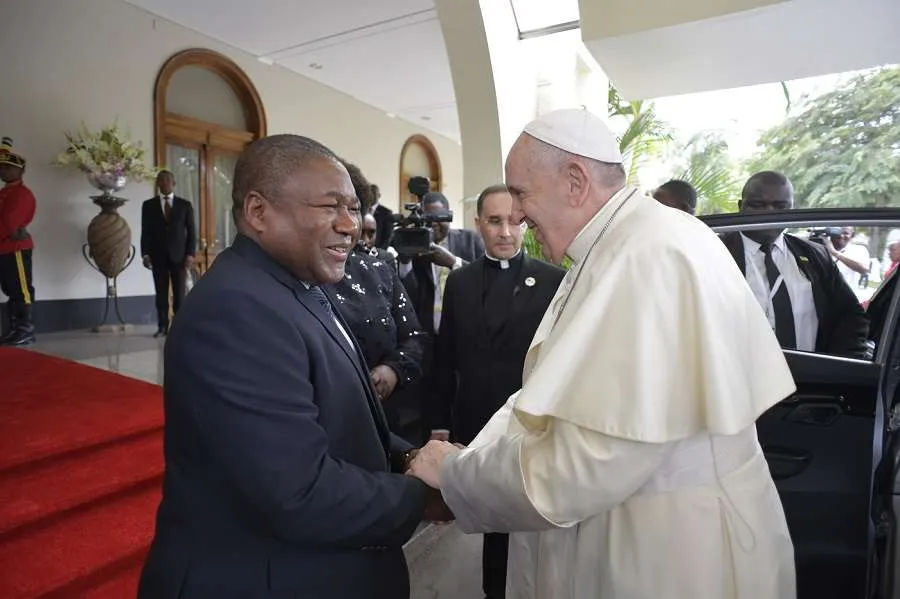Pope Francis welcomed this new agreement as “a landmark that we greet with the hope that it will prove decisive and a further courageous step on the path of peace that began with the General Peace Agreement of 1992 in Rome.”
The pope said that the 1992 peace accords have “gradually begun to bear fruit,” sustaining “hope and the determination to make your future not one of conflict, but of the acknowledgement that you are all brothers and sisters, sons and daughters of a single land, stewards with a shared destiny. Courage brings peace! Genuine courage: not the courage of brute force and violence, but one expressed concretely in the tireless pursuit of the common good.”
He said Mozambicans “have experienced suffering, sorrow and affliction, but you have refused to let human relationships be governed by vengeance or repression, or to allow hatred and violence to have the final word.”
Francis stated, “you have come to realize how the pursuit of lasting peace – a mission incumbent upon all – calls for strenuous, constant and unremitting effort … it demands that we continue, with determination but without fanaticism, with courage but without exaltation, with tenacity but in an intelligent way, to promote peace and reconciliation, not the violence that brings only destruction.”
He said that peace in Mozambique has allowed “promising advances” in education and health care, adding: “I encourage you to continue your efforts to build up the structures and institutions needed to ensure that no one feels abandoned, especially the young.”
Youths “have the potential to sow the seeds for the growth of that social harmony desired by all” the pope said.
Francis urged a “culture of encounter,” saying, “it is essential to cherish memory as a path opening up towards the future, as a journey leading to the attainment of common goals, shared values and ideas that can help to overcome narrow corporative or partisan interests. In this way, the true wealth of your nation can be found in the service of others, especially the poor.”
He encouraged further work in education, provision of housing, employment, and distribution of land for cultivation.
“These are the foundations for a future of hope, because it will be a future of dignity! These are the weapons of peace,” the pope said.
Francis also noted the importance of care for the land, which he said “is also the protection of life, which demands particular attention whenever we see a tendency towards pillaging and exfoliation driven by a greed generally not cultivated even by the inhabitants of these lands, nor motivated by the common good of your people. A culture of peace implies a productive, sustainable and inclusive development, where all Mozambicans can feel that this land is theirs.”








